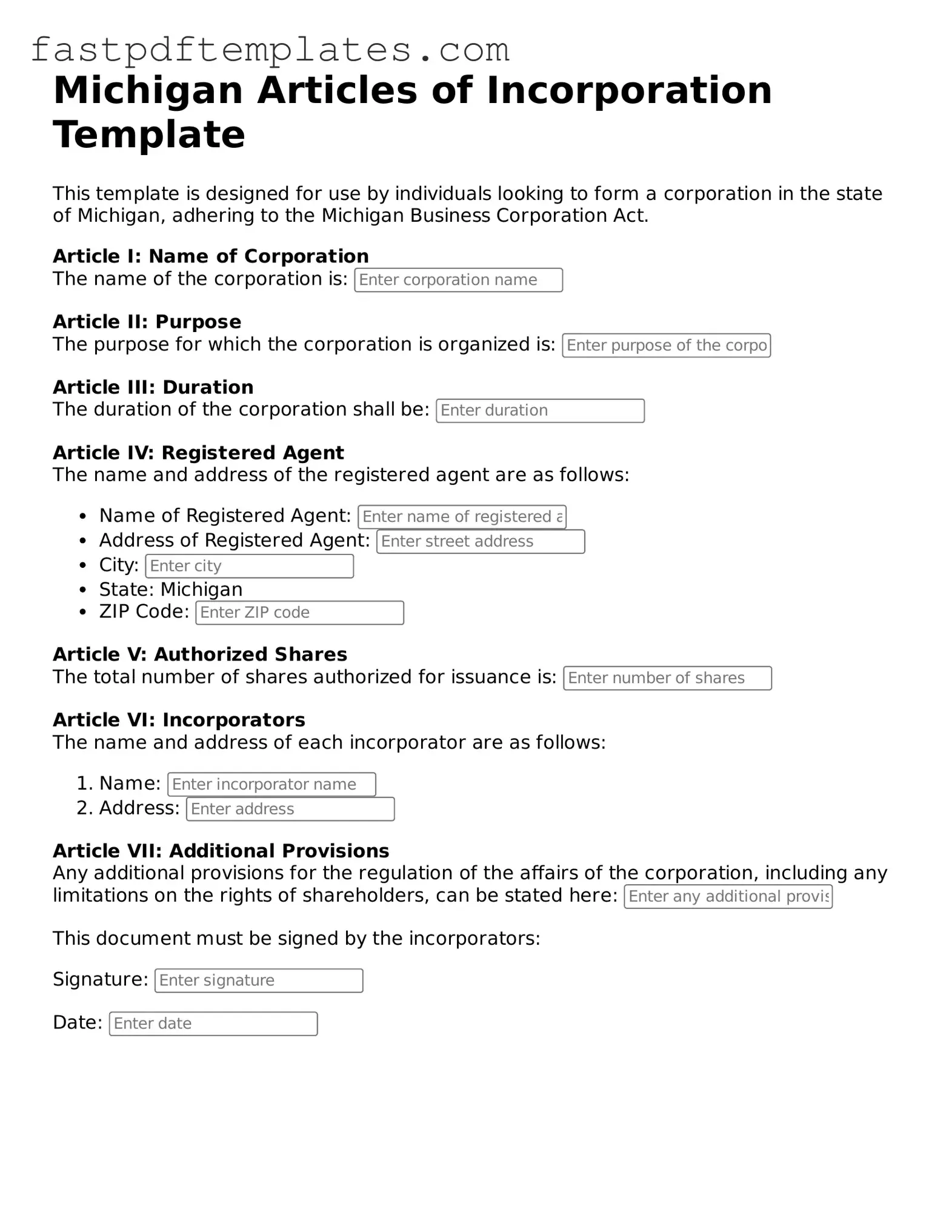The Articles of Incorporation in Michigan is similar to the Certificate of Formation used in other states. Both documents serve as the foundational legal paperwork required to establish a corporation. They outline essential information such as the corporation's name, purpose, and registered agent. While the terminology may differ from state to state, the core function remains the same: to officially recognize the corporation as a legal entity and provide a framework for its operation.
Another comparable document is the Bylaws. While the Articles of Incorporation establish the corporation, Bylaws govern its internal operations. They detail the rules and procedures for managing the corporation, including the roles of officers and directors, meeting protocols, and voting processes. Together, these documents ensure that the corporation operates smoothly and within the law.
The Operating Agreement is similar to Bylaws but is specific to Limited Liability Companies (LLCs). This document outlines the management structure and operating procedures of the LLC. Like Bylaws, it provides clarity on member roles, profit distribution, and decision-making processes. Both documents play a crucial role in maintaining order and transparency within the organization.
The Partnership Agreement is another document that shares similarities with the Articles of Incorporation. This agreement outlines the terms of a partnership, including contributions, profit-sharing, and responsibilities of each partner. While it pertains to partnerships rather than corporations, both documents serve to formalize the structure and expectations of the business relationship.
The Business License is also related, as it is often required to operate legally within a jurisdiction. While the Articles of Incorporation establish the legal entity, the Business License grants permission to conduct business activities. Both documents are essential for compliance with state and local regulations, ensuring that the business operates within the legal framework.
The Certificate of Good Standing is another relevant document. This certificate confirms that a corporation is legally registered and compliant with state regulations. It often serves as proof for banks and other entities that the corporation is in good standing. While the Articles of Incorporation initiate the corporation, the Certificate of Good Standing is a reflection of its ongoing compliance and legitimacy.
Finally, the Employer Identification Number (EIN) application is similar in that it is necessary for tax purposes. The EIN is required for corporations to report taxes, hire employees, and open bank accounts. While the Articles of Incorporation establish the corporation, the EIN is a critical component for its financial operations, ensuring that the entity can meet its tax obligations.

